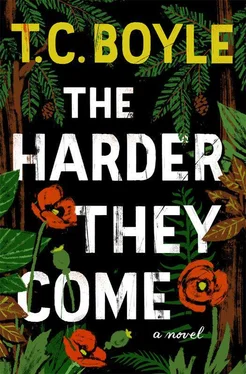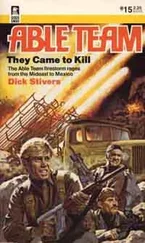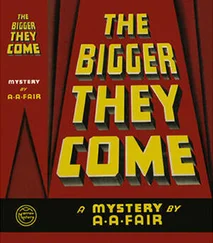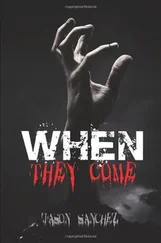“Where to?” Christabel asked, softening her look.
Christabel was a good friend, a true friend, the best she’d ever had, the one person who was there for her, wading through the shitstorm no matter what came down. And she was right, of course — they couldn’t sit here all night. Sara just shrugged.
“How about a drink? After all you’ve been through don’t you deserve it?” A little laugh. “Not to mention me.”
The truck rumbled. A plastic bag chased the breeze across the blacktop. She fixed one last look on the ugly buff building with its cheap knee-high vertical windows anybody could step right through and let out a sigh. “I don’t care,” she heard herself say.
They wound up going to a brew pub on State and she tried a pint of something called Mendo Blonde, but it tasted of hops and metal and just gave her gas, so they went over to Casa Carlos and had margaritas and chicken tacos and she ate too much and had at least two too many drinks. She didn’t even know she was eating, she was so upset. The food just seemed to disappear, tacos, beans, rice, basket after basket of the chips she dipped mechanically in the little cruets of salsa that began to clutter the table till there was no room to rest your elbow or even a forearm. And the margaritas too — as soon as she set down her empty glass there was a new one there to replace it. By the time they made it back home to Willits (twenty minutes on a darkened highway that seemed like hours), she was too exhausted to do anything more than collapse in bed after Christabel dropped her off. She didn’t even bother to turn on a light or pour herself a glass of water, just undressed in the dark, flinging her clothes in the direction of the chair in the corner, the house woeful and empty without Kutya there so that every creeping sound of the night was magnified, and if she was the kind who cried herself to sleep, she would have done it. She woke at intervals throughout the night, feeling as if she was being strangled in her sleep, a heavy shroud of sorrow and regret pulled up over her like a comforter made of dross.
She was up at dawn, her every mortal fiber aching, and her first thought was for Kutya. Christabel had agreed to drop her at the DMV before she went in to work, but that was two long hours away, and so she made herself a pot of coffee and some wheat toast and went out on the front porch to watch the sun ease its way down into the valley and illuminate the tops of the pines and firs and redwoods that had been the support of generations of loggers since the first settlers made their way up from the coast. She kept checking her watch, the minutes dragging as if they had anchors attached to them, and then the newspaper arrived to reiterate its falsehoods and outright lies, but she was too worked up to concentrate on it and she found herself pacing round the yard, back and forth, as if she were in the cell still — under lock and key, restrained, constrained, helpless — until Christabel’s pickup turned off the main road and came up the drive.
The people at the DMV barely glanced at her, lost in their wilderness of forms and regulations and computer printouts. She was the first one in the door when they opened. There was the usual crap, the flag, the linoleum, the chairs and desks and eye charts, all paid for by the wage slaves of the U.S. of A., one little sinkhole of bureaucracy amongst a million of them. The man behind the front desk could have been anybody, and if he realized he was a minion and servant of the corporate state, he gave no indication and she wasn’t about to inform him either. All she wanted was the signed, sealed and approved scrap of DMV paper to tape to the inside of her windshield. Which she got in due course. Money changed hands, naturally, but she wasn’t going to worry about that now because now she needed her car back so she could drive to the animal shelter and retrieve her dog before he whined himself to death — and what must he have been thinking? That she’d abandoned him? Given up on him? Told them to lock him away with all those strays they euthanized as if they had no more animate soul than a bug?
She got a surprise at the impound yard, which she’d walked to, ten long blocks, but it was a pleasant surprise, if you can call having your property stolen from you and paying to get it back pleasant in any way, shape or form. But there was Mary Ellis, one of her longtime clients, standing behind the bulletproof glass in the office, and she was sympathetic to the point of rallying to the cause — oh, she knew the arresting officer, all right, Joanie Jerpbak, and she was a queen bitch, daughter of a retired CHP officer who was the original son of a bitch — but more money, a lot more money, changed hands despite the sympathy, and then it was on to Animal Control.
Barking was what she heard when she pulled into the lot, barking that seemed to rise to a frenzy as she stepped out of the car, and what were they doing to them in there, goading them with cattle prods? She remembered her husband — ex-husband — telling her a story about how they trained the police dogs down in Sacramento. He was in college then and the apartment he was renting was on the second story of a building that looked down on the backyard of the K-9 academy, where they kept and trained the dogs. One afternoon he heard the dogs going crazy and looked out to see a figure dressed like the Michelin Man with a pair of Belgian shepherds tearing at him. He had a stick in his hand — he was the aggressor, the bad guy — and he didn’t shout, “Bad dog!” No, what he was shouting was “Good dog!” over and over again. That was how they trained them. That was the kind of people they were.
Her throat was dry and her heart was pounding when she stepped through the door, the barking from the pens in back rising in volume and yet another functionary standing there gazing at her from behind another desk. They murdered dogs here, that was what she was thinking, euthanized them, and from the sound of it, provoked them just for the pleasure of it. She didn’t say hello or state her business, but just gave the functionary — a woman in her twenties dressed in khaki shirt and shorts — a shocked look. “What are you doing to them back there?” she demanded.
The woman — girl — smiled. “They’re all excited,” she said, and the smile widened. “It’s feeding time.”
Feeding time. Did she feel foolish? Maybe. A little. She shifted her gaze to the bulletin board on the side wall, which was plastered with head-shots of dogs and cats up for adoption, and then to the cats themselves, ten of them or so, each in a separate cage tricked out with a mini hammock, as if they were on vacation with all the time in the world at their disposal, as if they were happy to be here, when the truth was they were only waiting for their appointment with the furnace in back. There was an antiseptic smell about the place, a scent of formalin and Simple Green, and something else she couldn’t quite place, something caustic. The counter before her offered brochures on pet care, vaccinations and neutering and a hallway led to another door, the one that gave onto the inner sanctum. “I came for my dog,” she said, bringing her focus back to the girl. “I would’ve been here last night, but you were closed.”
“Name?”
“Kutya.”
“Kutya what?”
“Just Kutya, that’s all. I mean, does a dog have to have a last name?”
The girl let out a laugh. “Sorry,” she said. “Your name, I mean.”
“Sara Hovarty Jennings. That’s H-o-v-a-r-t-y, Jennings. They took my dog away from me yesterday afternoon, the cops, when they impounded my car. And they brought him here.”
Still smiling — they’d broken the routine, shared a joke — the girl focused on the screen of her computer and tapped away at the keyboard. Sara stood there at the counter studying the girl’s face while the dogs barked distantly and a pale finger of sun poked in through one of the windows she’d briefly considered smashing the night before. She watched the smile fade and then die. “I’m sorry,” the girl said, looking up at her now, “but we can’t release the dog at this time.”
Читать дальше












